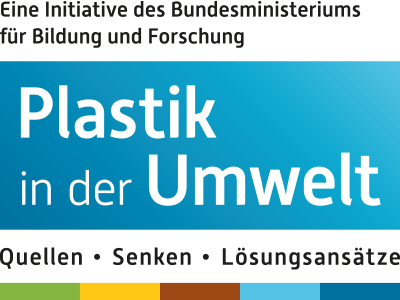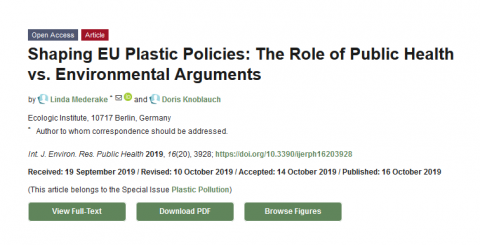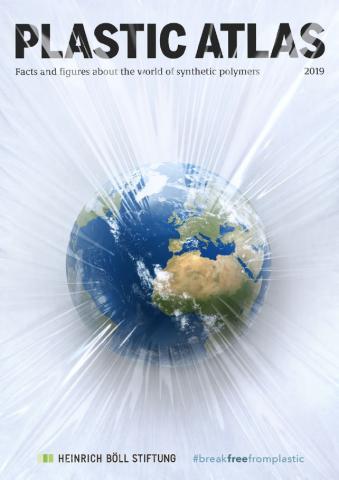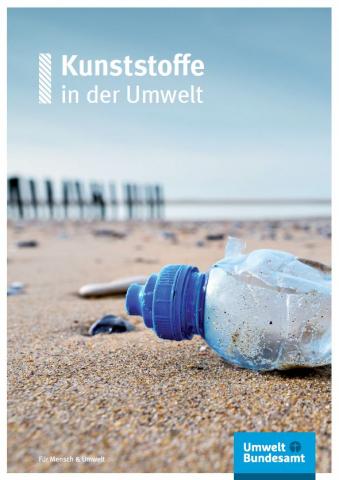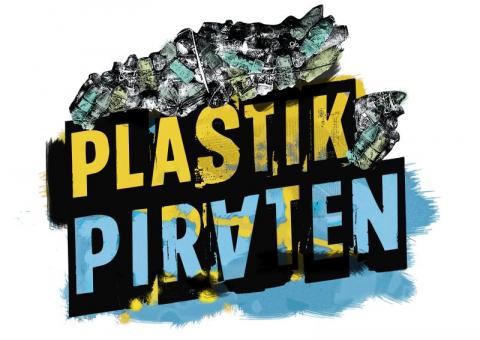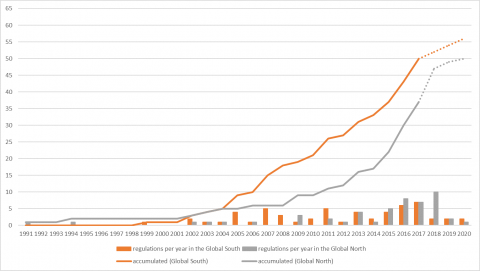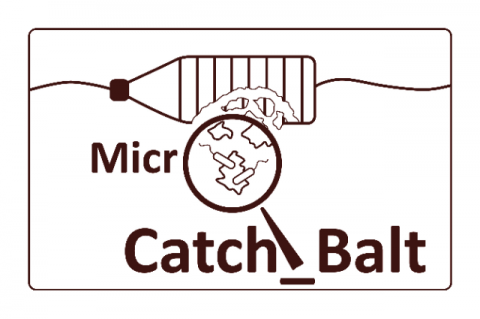Macroplastics
This article by Ecologic Institute's Linda Mederake and Doris Knoblauch uses a structuring qualitative content analysis to investigate the parliamentary debates of two recently adopted plastic policies in the EU – namely the EU Plastics Strategy and the Single-Use Plastics Directive – and assess the relevance of public health and environmental arguments for the EU debate.
Plastic Atlas 2019: Facts and figures about the world of synthetic polmers
Plastics have become an indispensable part of our everyday lives. Plastic products make a lot of things easier, but they also endanger our health and flood our planet with garbage. The Plastic Atlas offers data and facts about a world full of plastics. In 19 chapters, it sheds light on very different aspects of plastics, each of which is illustrated with infographics.
Kunststoffe in der Umwelt
To what extent can plastics be found in water, soil, air, in the oceans and on the coasts in Germany? How and why do they get there at all? Where is further research needed - and what measures can be taken to reduce the amount of plastics in Germany? On the occasion of the World Oceans Day on 8 June 2019, the German Environment Agency published a current overview.
Plastic Pirates sample litter at rivers in Germany – Riverside litter and litter sources estimated by schoolchildren
Rivers are an important source of marine anthropogenic litter, but the particular origins of riverine litter itself have not been well established. Here we used a citizen science approach where schoolchildren examined litter at riversides and identified possible sources at over 250 sampling spots along large and small rivers in Germany, during autumn 2016 and spring 2017.
Developing Countries in the Lead – What Drives the Diffusion of Plastic Bag Policies?
In this article, the authors analyze the diffusion patterns of plastic bag bans and plastic bag taxes in the Global South and Global North to contribute to the further refinement of diffusion theory by specifically addressing the under-researched Global South.
